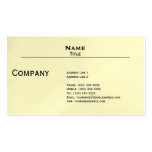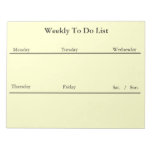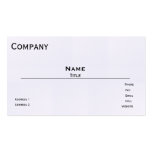Insurance is one of the most expensive things people buy and they can’t see it, touch it, or hold it.
You’re selling ideas. You’re selling trust. You’re selling promises.
You’re selling yourself.
This is such a huge challenge that most insurance salespeople quit in the first 2 years and many agents are afraid to hire inexperienced salespeople.
I hate to see young producers fail and even more, I hate seeing agents miss out on the largest pool of cheap, passionate, and open-minded talent.
That’s why I created this resource. To help young insurance salespeople be successful and encourage hiring agents to consider young and inexperienced applicants.
If you know a young insurance salesperson please pass this article along to them. And if you are one:
Follow these 21 tips to be an inexperienced but insanely successful insurance salesperson:
1) Dress More Professionally
Obviously, if you dress more professionally clients are more likely to take you seriously. I don’t need to convince you of that.But when you’re the sharpest dressed person in the office your coworkers and your boss will take you more seriously and most importantly, you’ll take yourself more seriously!
Sometimes confidence comes from the outside in. If you look the part everyone, including yourself, will start to believe it.
2) Avoid Using “Young” Slang
Have you ever told a client or prospect that you were “all about” customer service?Do you express agreement by saying things like, “Gotcha”, “Right on” or “For Sure”?
Don’t get me wrong, I believe in being yourself and not apologizing for it, but when you’re trying to sell, the more you speak like your prospect the better success you’ll have.
If your prospect doesn’t use those terms it’s harder to earn their trust when you do.
3) Find Common Ground
Regardless your prospect’s age or background there’s always something you have in common.Find it.
Did you grow up in the same neighborhood? Like the same baseball team? Shop at the same grocery store? Do you both love your family?
Ask questions and figure it out so you can focus on the commonalities and skip over the rest.
4) Ask Prospects About Their Kids
If you’re trying to sell to someone much older than you, try to find out if they have a child or grandchild your age and ask a lot of questions about him or her.You’ll prime their brain to think about their loved one. This makes your prospect more likely to buy from you since they would want someone else to do the same for their child.
Plus, while you may be young and inexperienced, if you’re more polished than their child you’ll come off as a real professional by comparison.
5) Reference Combined Experience
Remind prospects that they’re not buying only from you.“I passed my licensing exam 3 months ago and I’m so lucky because our office has over 45 years of insurance experience! In fact, every single policy I write is double-checked by the owner of the agency.”
If experience may be an issue for your prospect, make sure they know you’re up to your ears in it.
6) Learn From Experienced Coworkers
Technology has created a very unusual situation in the business world.It makes younger people think they’re smarter than they are.
As a tech guy myself, I know it’s hard to take advice from someone you just watched peck away at a keyboard to write a one sentence email.
But I also know more multi-millionaire insurance agents than almost anybody and I have found almost no correlation between their tech abilities and their success.
That’ll change for your generation, but learn everything you can from those who’ve been around.
7) Be Enthusiastic
Have you ever seen an infomercial without enthusiastic people?Everybody likes enthusiasm and as a young salesman, you can display unbridled enthusiasm without looking like an idiot.
People will just think you’re young and have a lot of energy.
They’ll like it. And they’ll buy into it.
8) Follow the Markets
If want to relate to a more mature and professional audience, follow the stock market.You don’t have to be an expert, just know enough to ask questions that don’t make you sound stupid.
After you’ve qualified someone by asking if they follow the market, ask something like, “What sectors do you think are going to do the best in the next quarter?”
And don’t turn into one of those Cramer wannabees who think they always know the sleeper stock. It’ll make you look inexperienced to someone who has followed the market for years.
9) Listen to Your Phone Voice
Record your voice on the phone while talking to some clients.Do you sound smart?
Do you sound confident?
Do you sound like a little kid who picked up the phone in Daddy’s office?
10) Sell to Other Young People
There’s one group you have a huge advantage with in selling… other young people!And guess what…
There’s millions of them!
Millions buying homes, millions getting married, starting businesses, having kids, buying expensive stuff!
Go get them!
11) Don’t Ignore Sales Fundamentals
I’m sorry to burst your bubble, but Facebook, Twitter, Text Messages and QR Codes don’t sell insurance.People do.
Of course there are tools that can make things easier and more effective for agents, but social media will never replace the basics.
Read “How To Win Friends and Influence People
 ” by Dale Carnegie. It was written in 1936 and teaches you how Teddy Roosevelt, Henry Ford, Benjamin Franklin and a lot of other old people become successful long before Mark Zuckerburg.
” by Dale Carnegie. It was written in 1936 and teaches you how Teddy Roosevelt, Henry Ford, Benjamin Franklin and a lot of other old people become successful long before Mark Zuckerburg.Everything in that book is just as relevant today as it was 75 years ago.
12) Speak Less, Listen More
As a young or inexperienced salesperson, there’s always an impulse to demonstrate your knowledge.You want prospects to see you know your stuff because you’re a bit worried about it yourself.
The more you talk or explain things they didn’t ask about, the more obvious it is how much you don’t know.
And the more likely you’ll elicit a question you can’t answer!
13) Bring Up Age First
The best way to avoid an objection is to bring it up and overcome it before the prospect has a chance to.Make a joke about your inexperience and be open about it.
Once you’ve brought it up, you have the excuse to explain why your prospect shouldn’t be concerned.
(you’re well-trained, you’re licensed, you ask questions when you don’t know answers, etc)
14) Be Better Prepared
If your inexperience makes you feel inadequate as a salesperson then find a way to get around it.Work harder, work longer, learn more about your products. Have an answer for every possible question.
Read books about sales, listen to sales audio tapes, go to seminars about sales.
Get in front of a mirror, a colleague, or a friend and practice your sales scripts, practice your rebuttals, your closes.
Nothing comes to you. Prepare yourself and go get it.
15) Expect to Live In the Trenches
Selling insurance is hard, hard work.Insurance agents you see with big houses and nice cars playing golf around the world didn’t get there overnight.
They sold and sold and sold.
And sold more.
It’s the only way to become super successful in this business and if you want to be successful you’re going to have to do it too.
16) Ask Yourself, “Can I Do This?”
Next time you psych yourself up for a big sales meeting (or anything else) don’t say:“I can do this.”
Instead ask yourself,
“Can I do this?”
The first is like smashing your head into a locker before a football game. (which I have done plenty)
The second forces you to analyze the question and answer with real reasons that convince yourself.
“Of course I can do this, I’m licensed, I’m trained, I know the products, I’ve studied sales, I know every objection and how to avoid it, I’ve practiced every element of the sales process, and most of all, I believe in what I sell.”
Then slam your forehead against the wall.
17) Don’t Spew Features
When you’re new to selling it’s common to focus on product features rather than benefits.At some point you learned all 10 features of a product and you’re anxious to prove your knowledge by telling customers about all 10 of them.
Unfortunately they don’t care about all of them.
There’s maybe one or two features that interest them and you’re better off asking questions to identify the client’s needs so you can explain how your products will satisfy those needs than trying to explain everything.
Don’t spew features on your clients; identify their needs and satisfy them.
18) Don’t Use Jargon
Nothing says “bad salesperson” more than using jargon to someone that doesn’t understand it.There is no better way to show prospects you don’t give a %&#! about them than by using terminology no one outside your industry should know!
When you’re new, you have a unique advantage of being able to relate to clients as an outsider.
People will actually relate better to you if they feel like you’re still on their side. You haven’t crossed over to the “insurance salesman” side.
Don’t use jargon, it only makes you look like you’re hiding something.
19) Recognize and Act on Buying Signals
I’ve witnessed a lot of new salespeople shoot themselves in the foot because they didn’t know when to shut up.When someone is ready to buy, let them do it.
If it’s that important to explain everything then go ahead and do it… after you get their signature and a check!
20) Don’t Sell on Price
I get it… people are shopping on price, they’re comparing on price, and they’re buying on price.You buy everything on price too, right?
Wrong.
Here’s the bottom line:
If you honestly believe people only buy on price then quit today. You’re in the wrong business and the industry doesn’t need you.
We’re not going to survive with a bunch of price-checkers. The entire industry will suffer if you don’t get out now.
21) Embrace Your Youth
Be crazy. Be reckless. Be passionate. Be young!No one ever had a mid-life crisis and became an insurance salesman. Don’t be afraid to breathe some life into this business!
Smile. Laugh. Be fun.
Who would you rather spend an hour talking about insurance with?
- Don’t Just Read This Article:
- Make a list of strategies that are going to help you.
- Develop an ACTIONABLE plan to follow through.
- Share this resource with every insurance school classmate or young co-worker so they’ll owe you a favor.








No comments:
Post a Comment